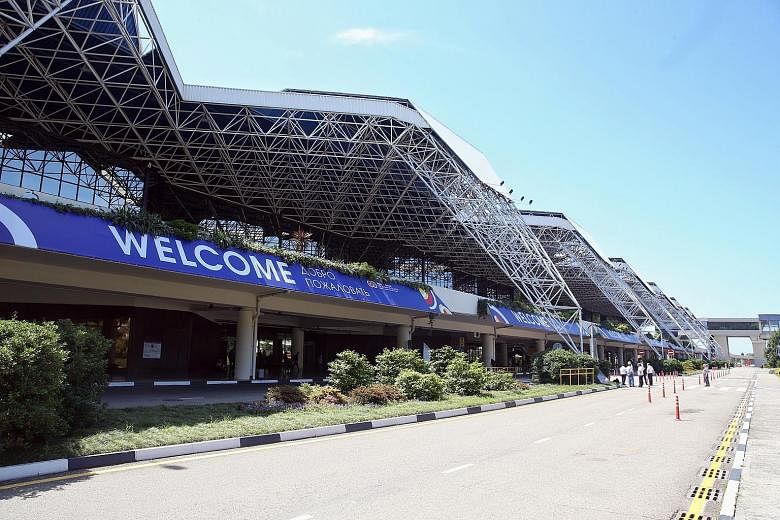SOCHI (Russia) • When Sochi overhauled its airport six years ago to prepare for the 2014 Winter Olympics, Changi Airports International (CAI) played a key role in helping the Black Sea resort city cope with the 600,000 guests and athletes who flew in.
The global arm of Changi Airport Group "worked exceptionally hard" to make sure Sochi's airport was not just ready for the Games, but that it delivered a "Changi experience", Senior Minister of State for Transport Josephine Teo said on Friday.
In spite of being almost 8,000km away from Changi, passengers arriving at and leaving Sochi enjoyed similar standards to Changi in check-in time as well as baggage handling.
For its strong performance in 2014, Sochi Airport was named Airport Of The Year at Russia's national aviation industry awards.
In achieving such standards, CAI had to adapt to local conditions, from dealing with the authorities to recruiting and training people and inculcating a culture of excellence, Mrs Teo, who is also Senior Minister of State for Foreign Affairs, told Singapore reporters at the end of Prime Minister Lee Hsien Loong's four-day visit to Russia.
Officials and observers say inroads like that made by CAI are but one example of the potential Russia holds for companies from Singapore, whose expertise in areas like transport management is sought.
Last year, a consortium, of which CAI is a part, won the right to operate the strategically important Vladivostok International Airport.
Said Mrs Teo: "If we can play a small part in helping to develop Russia's far east, to make it the kind of vibrant place the Russians envision, it will further deepen cooperation between Russia and Singapore, expose more of our people to opportunities in Russia and create better awareness of what more can be done."
Dr Bhavna Dave, a senior lecturer in Central Asian politics at the School of Oriental and African Studies, University of London, told The Sunday Times that Russia highly values Singapore's prowess in industrial planning, transport, commercial and residential infrastructure.
"Singapore companies' experience in establishing agro-industrial zones, setting up energy-efficient systems, waste management and ecological safeguards as well as business premises and private housing is also of interest to Russia in the development of its far east and improving its infrastructure in other cities," she said.
There are also opportunities to be had in sectors such as property development and logistics, said Singapore Business Federation chief executive officer Ho Meng Kit, who led a mission comprising 14 Singapore companies to Russia last week.
He cited how serviced apartments operator The Ascott has begun looking at expanding in Moscow again. "Now the timing is better because prices are lower, so there'll be more properties and opportunities available for it," he said.
The relationship is not all business. Russian culture is being exported to Singapore too, and Mr Ho points to a recent agreement between Singapore company Gribushin House and the Russian State Circus Company to bring the troupe back to Singapore after a 50-year break. They hope to bring the show here in 2018.
Beyond Russia, Mr Ho noted that a free trade agreement between Singapore and the five-member Eurasian Economic Union, which Mr Lee hopes can be reached by 2018, should also interest Singapore businesses keen on other countries in the grouping.
Singapore has good ties with Kazakhstan, which is set to benefit from China's ambitious One Belt, One Road initiative, given its strategic position between Europe and China.
"Whether it is gas pipelines, railways or highways, a lot of that goes through Kazakhstan, and that strategic initiative will result in lots of development, whether in transportation, industrial town projects or mobility projects," Mr Ho said. Lim Yan Liang


